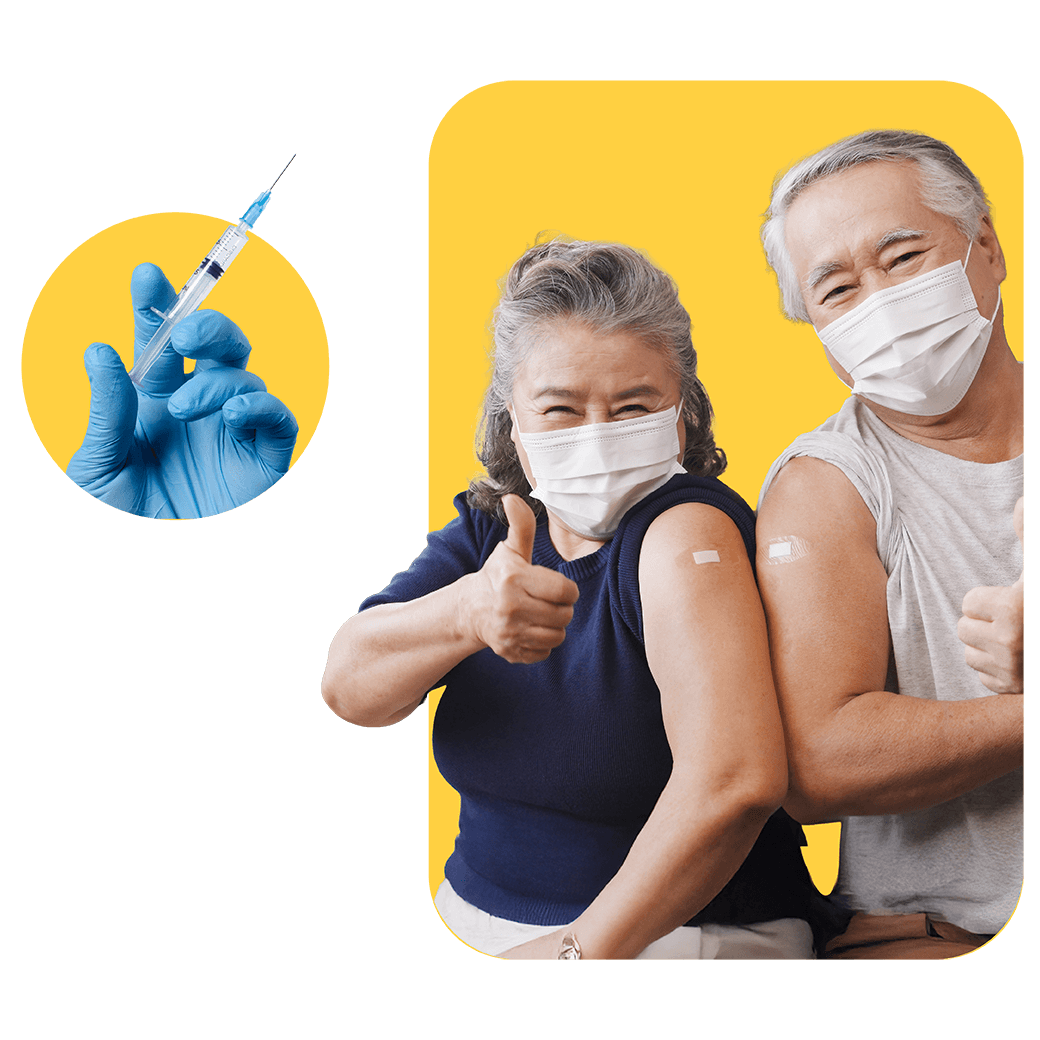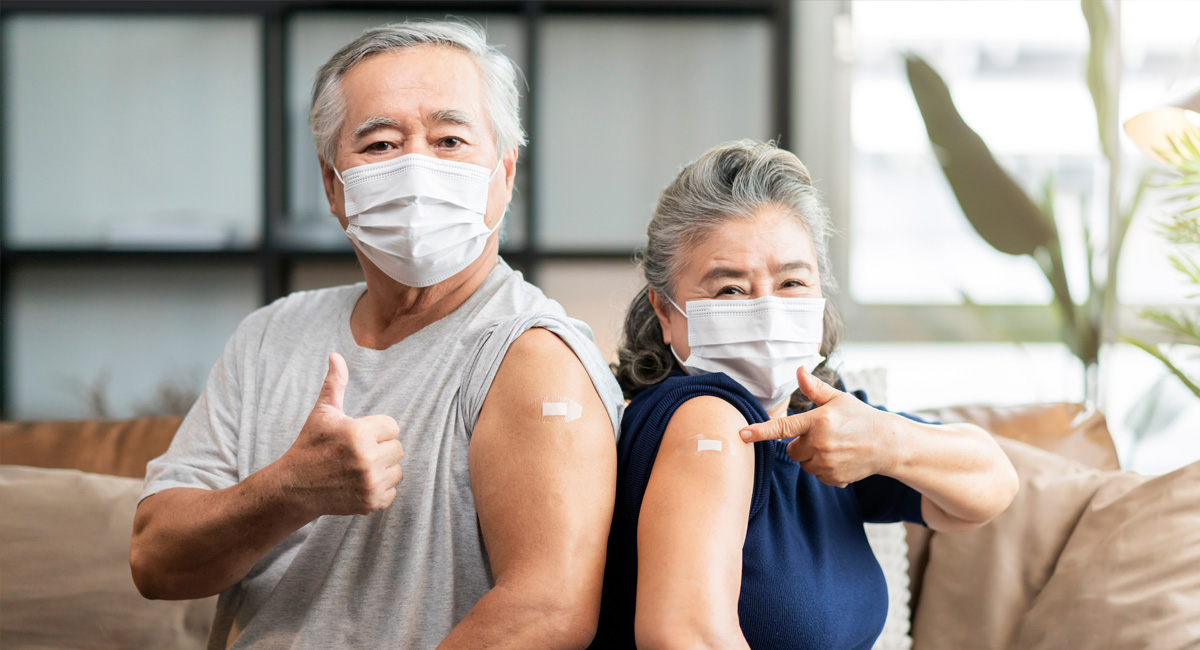A persistent cough, a sudden high fever, a terrible headache. These symptoms could signal a bad cold, or they could be the first signs of a serious, life-threatening infection. We’re talking about pneumococcal disease — a group of infections caused by a common bacterium that can lead to severe illnesses like pneumonia, meningitis, and even septicaemia.
For many, a pneumococcal infection can begin like a bad cold or the flu, making it easy to overlook. But for certain groups, it can quickly escalate into a medical emergency. This is why vaccination is so crucial.
The Unseen Dangers of an Infection
A severe infection is often not just an acute, short-term illness. While many patients are eventually discharged from the hospital, some never return to their baseline health, with other medical problems emerging in the months or even years that follow. For seniors, a severe bout of pneumonia can even lead to a decrease in life expectancy.
For individuals with an underlying heart condition, a severe pneumococcal infection can be particularly dangerous. The infection can trigger a cascade of inflammatory responses, which in some cases, can even lead to a heart attack. This highlights why a serious infection is not just a lung problem, but a systemic threat.
PCV20 and the NAIS

In Singapore, the Ministry of Health (MOH) has taken a significant step in preventive health. This September 2025, the new 20-valent pneumococcal conjugate vaccine (PCV20, also known as Prevenar 20) will be included in the National Adult Immunisation Schedule (NAIS).
So, why is this vaccine in the NAIS now? PCV20 is a newer vaccine that provides broader protection. It covers more types of pneumococcal bacteria than previous vaccines, offering a wider shield against potential infection.
The NAIS now recommends PCV20 for two key groups:
- Adults aged 65 and above.
- Adults aged 18 and above with specific chronic conditions.
Subsidies under the Vaccination and Childhood Development Screening Subsidies (VCDSS) scheme will apply for this vaccine from September 1, 2025, making it more accessible than ever.
Why PCV20 Matters to You
This new recommendation is a critical reminder that while pneumococcal disease is a threat, it’s also highly preventable. For the most vulnerable groups, particularly seniors and those with compromised immune systems, vaccination is a vital defence.
It is a common misconception that getting a flu jab provides full protection against all respiratory illnesses. The truth is, many different viruses and bacteria can cause serious infections. Contracting one episode of pneumonia doesn’t give you immunity against all of them. This is why getting your full protection with both the various influenza and pneumococcal vaccines available is so important.
This new vaccine and its inclusion in the NAIS signal an important opportunity for us all to be more proactive about our health. A single vaccination can provide significant protection against a group of serious infections and offer greater peace of mind.
Frequently Asked Questions about Pneumococcal Vaccines
1. Is the pneumococcal vaccine free in Singapore?
No, the pneumococcal vaccine is not completely free for everyone. However, subsidies are available under the Vaccination and Childhood Development Screening Subsidies (VCDSS) scheme for specific groups of Singaporean citizens who are eligible for the vaccine under the National Adult Immunisation Schedule (NAIS) or the National Childhood Immunisation Programme (NCIP). The amount of subsidy depends on the vaccine, your age, and your eligibility.
2. Where can I get a pneumococcal vaccine in Singapore?
You can get the pneumococcal vaccine at a variety of locations in Singapore, including polyclinics and participating GP clinics. Many of these clinics are part of the VCDSS scheme, which allows you to use your subsidies.
3. Is it necessary to get a pneumococcal vaccine?
Yes, getting a pneumococcal vaccine is highly recommended for at-risk individuals, as it is a safe and effective way to prevent serious and potentially life-threatening infections like pneumonia, meningitis, and septicaemia. It is particularly important for young children and adults over 65, as well as those with certain chronic medical conditions.
4. How long does a pneumococcal vaccine last?
The duration of protection depends on the vaccine type. For example, PCV13 is typically a one-time dose for adults, while PPSV23 may require an additional dose five years after the first. For adults aged 65 and above, a single dose of the newer PCV20 vaccine is recommended. A doctor can provide the most accurate advice on the specific vaccination schedule needed for your age and health status.
5. Do I need a pneumococcal vaccine every year?
No, a pneumococcal vaccine is not required every year. This is a key difference from the annual influenza vaccine. The number of doses and timing of subsequent doses for pneumococcal vaccines depend on the specific vaccine type and your health history. A doctor can advise you on the correct vaccination schedule for you.
If you have questions about your eligibility or wish to schedule a vaccination, a Doctor Anywhere doctor can provide comprehensive advice and support.







